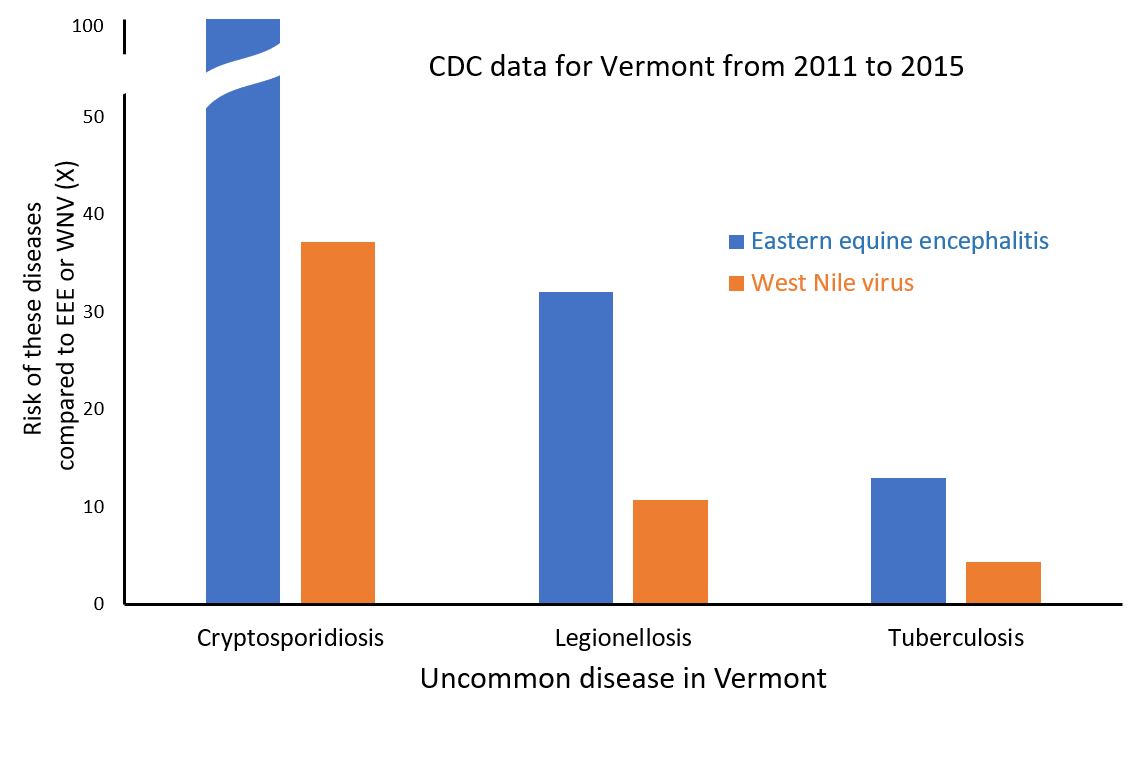There has been a lot of scary information about mosquito-borne diseases repeated by employees and board members of BLSG. There are two serious diseases carried by mosquitoes in Vermont, and one killed two people in 2012. That fact alone deserves our attention, but how much should we be concerned about these diseases?
According to available CDC data, since West Nile virus first appeared in Vermont in 2011, 12 people in the state have become ill from the virus, and we assume they contracted it from mosquito bites. Since 2011, only two people have gotten sick from Eastern equine encephalitis, both in 2012. Tragically, those two people died from the disease. No one in Vermont has ever died from West Nile virus.
That is a total of 14 cases of mosquito-borne disease in Vermont. These two diseases are terrible, but they are both rare in the state. Most healthy people who get infected with these diseases have no symptoms at all or have flu-like symptoms and recover in a few weeks.
To put the risk of these diseases in perspective, they are both much rarer in Vermont than some other diseases that most of us never think about. In Vermont, we are 10 to 100 times more likely to contract tuberculosis, Legionnaires’ disease, or Cryptosporidiosis (whatever that is) than to get eastern equine encephalitis. We are four to 40 times more likely to get those potentially deadly diseases than to get West Nile virus.

Knowing the true risks of mosquito-borne diseases in Vermont helps us make sound decisions about how to protect ourselves from them. Repeated and alarming rhetoric about these very rare diseases could cause more harm than good, especially when it encourages us to ignore the risks of regular doses of pesticides which are known to have potential health risks. Many people in the BLSG district are very concerned that the chances of being harmed by roadside spraying of toxic pesticides are far greater than the chances of ever getting a disease from a mosquito.
It is especially disturbing that BLSG continues to name Zika virus as a disease we should be concerned about in Vermont. No one in the US has ever gotten Zika virus from a mosquito north of Texas and Florida. You won’t learn that from the scary information at the BLSG website or their forays into the local newspapers.
Before we make decisions about whether to invite exposure to neurotoxins like malathion and permethrin we should understand the true risks of nuisance mosquitoes.

